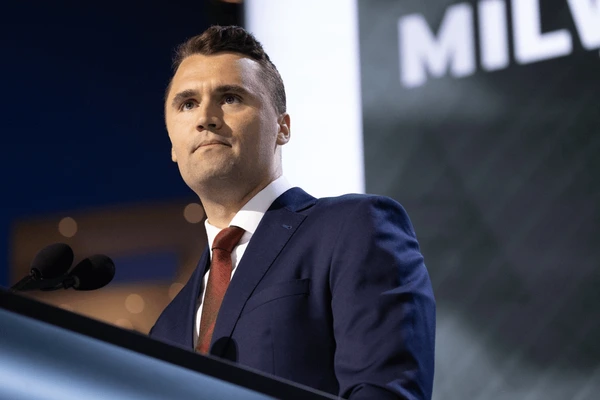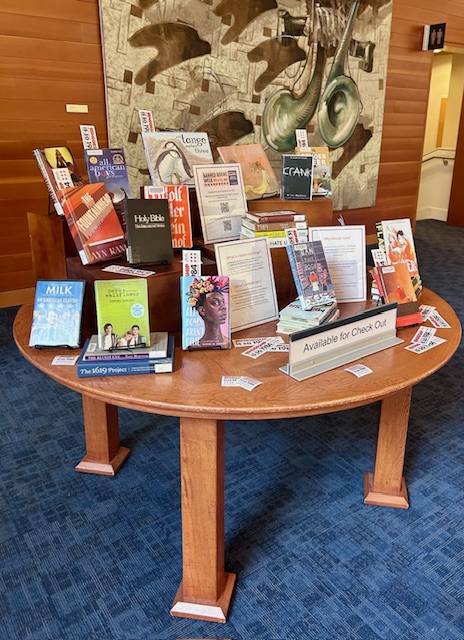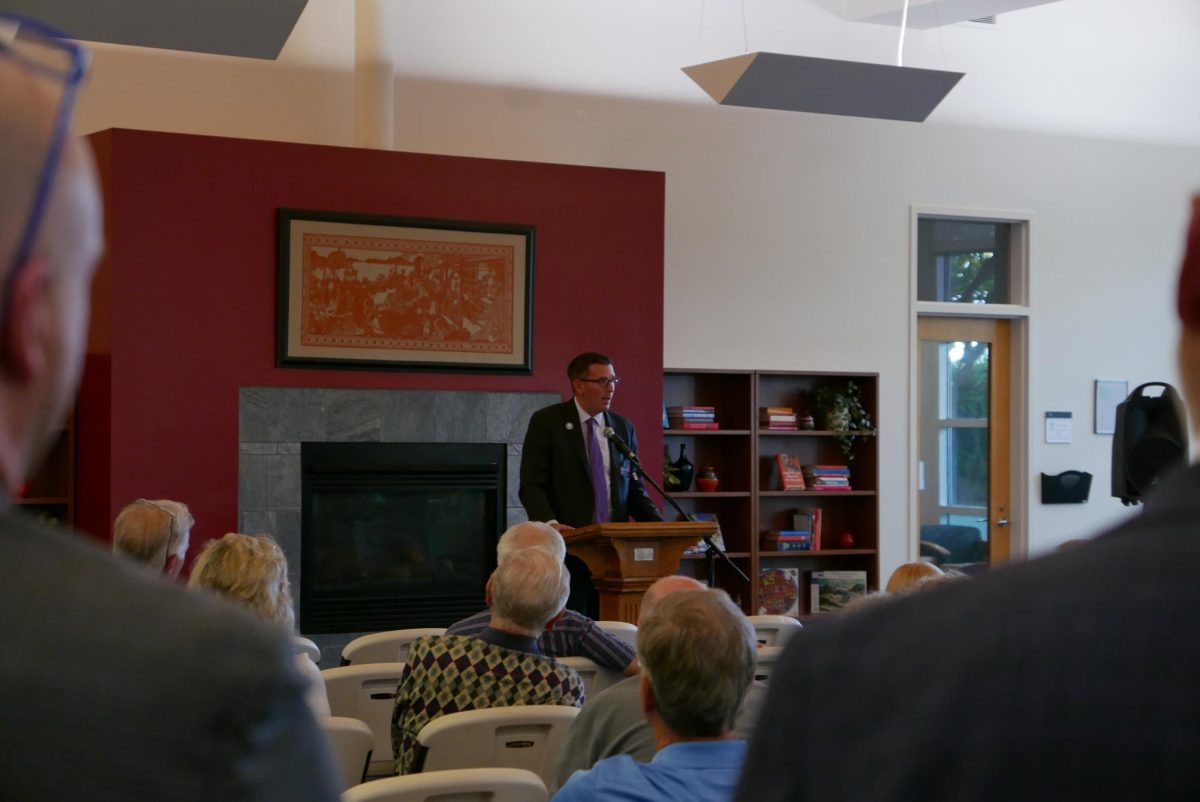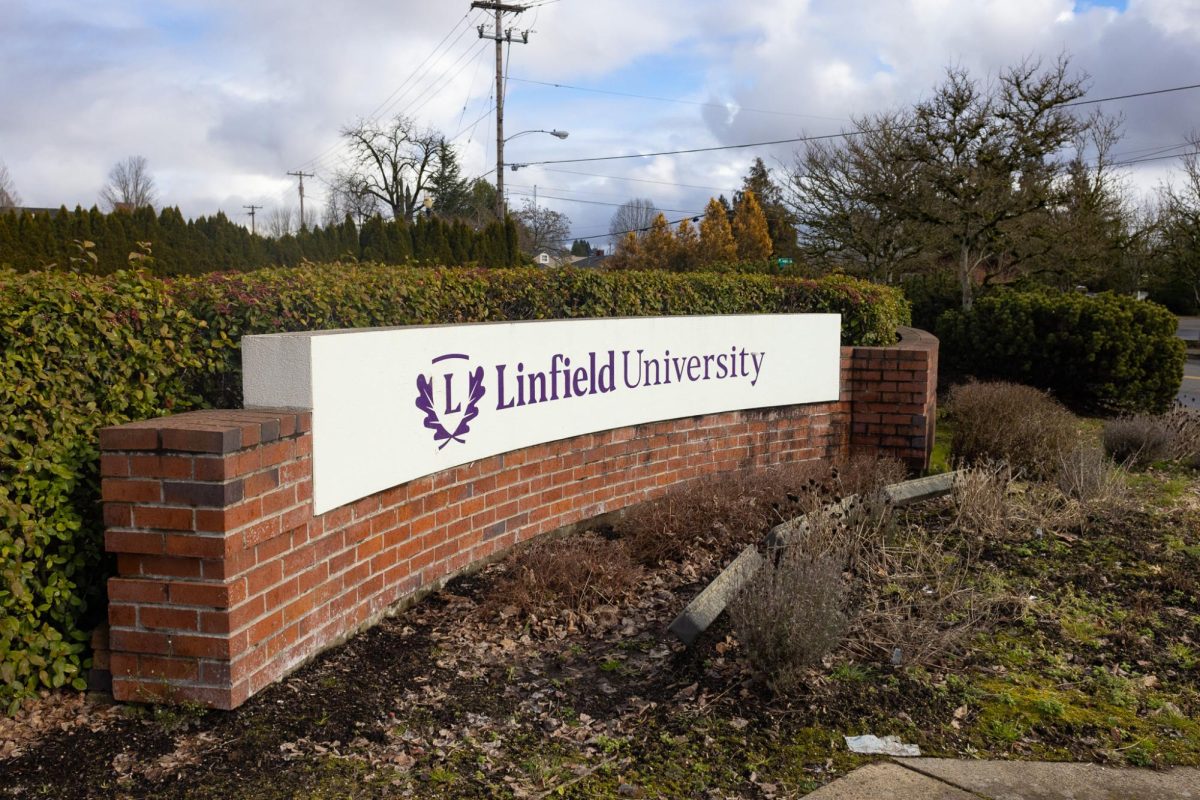The Associated Students of Linfield College Cabinet elected May 5 to deny a proposal that would allow students with stipend positions in multiple platforms to receive more than one position.
The decision stems from a policy in the ASLC Budgetary Policy, which states “stipend employees may not receive more than one stipend. If they hold two positions that receive a stipend, then they will be granted the larger of the two stipends.”
But while this rule has been enforced when students on ASLC Cabinet or Linfield Activities Board hold multiple stipend positions, such as those in student media, it has not been enforced when students hold positions within the student media entities: KSLC 90.3 FM, The Linfield Review, Wildcat Productions and Camas Journal of Art & Literature. The leaders of these organizations make up the Communications Board.
Part of the concern of the Communications Board members was that they were not informed about this policy until after they started hiring their staffs for next year.
KSLC General Manager junior Eric Tompkins said he wasn’t privy to the policy until two weeks after he’d begun hiring.
“I thought it was a mistake, I thought it was miscommunication. I’ve never heard of it before; it’s never been enforced,” sophomore Jessica Prokop, editor-in-chief of The Linfield Review for 2011-12, said. “It should have been notified to everyone in media organizations and campus in general to people who have stipends because we had already started our hiring process by then. We should have been notified at least two months before.”
Camas editor senior Lauren Funtanilla said she ran into the double-stipend problem her sophomore year when she was both an editor of Camas and a member of LAB.
“You only are made aware of it if you fall into that position of being in two positions. I feel like they don’t tell you that up front,” Funtanilla said.
Junior Yin Xiao, who will be online editor for TLR and vice president of Wildcat Productions next year, said that not receiving a stipend devalues her hard work.
“When I applied as vice president for Wildcat Productions, I didn’t know anything about it,” Xiao said. “I didn’t care about it, how much I would get, but now I feel like even if it’s $50, it’s still what I get and it’s the value I am.”
Sophomore Brinn Hovde, next year’s KSLC music director and TLR business manager, is also affected by the no-double-stipend policy.
Sophomore Kelsey Hatley, co-editor for Camas along with sophomore Julia Cooper and junior Kate Koten next year, said the media stipends are insubstantial, so it’s nice to receive them as a form of recognition, not monetary compensation.
“To have stipends and rip the carpet out from underneath people and say that shouldn’t really be your priority, that really devalues the work that people put into it,” Tompkins said. “It’s a token of recognition of the work a person’s done, not a direct translation of the amount of hours that a person’s put in.”
ASLC President junior Rachel Coffey said that although the policy hasn’t been imposed on media in the past, it is in the bylaws and needs to be enforced now, especially since it has been enforced on students within ASLC and LAB.
“I’m sorry that they feel they were uninformed, but it’s definitely a conversation that we can have every semester now as a reminder,” Coffey said. “It’s the policy we have. I’m sorry it hasn’t been enforced. I definitely know it’s been enforced on our side.”
Director of College Activities Dan Fergueson said the policy came about one year when an editor-in-chief of TLR was also secretary of the ASLC Cabinet. Holding both positions spurred ethical dilemmas in terms of what could and could not be reported.
Next year’s TLR Adviser Brad Thompson, department chair and associate professor of mass communication, said he supports the enforcement of the policy when it involves students holding government and media positions.
“Someone in the media should not be in government in the same way that the New York Times doesn’t have members of Congress on its staff,” Thompson said.
But Thompson said an allowance needs to be made when the policy involves a student in two media positions, largely because of media convergence.
“We need to recognize that there’s a lot of overlap between some of the functions that the radio and the newspaper and Wildcat Productions and maybe even Camas [perform],” he said.
Convergence was highlighted as a main reason in the Communications Board’s proposal to grant media students multiple stipends. But Coffey said the policy does not stop students from learning and gaining key experience in multiple media.
“We’re not stopping them from learning the different areas of the media, we’re just saying they can’t get paid to do both,” she said. “If it’s the experience they want, they can still have the experience.”
Coffey sent a memo to the Communications Board on May 9 in reply to its proposal that the board be an exception to the double-stipend rule. Some reasons for the rejection provided in the memo include the need for “a consistent policy across all of ASLC’s programs” and the need to spread out stipend-receiving leadership positions to more students.
Tompkins said the latter is ridiculous because students are not clambering for media positions.
“It’s probably better to have some people get paid twice than to not get the job done,” Thompson said. “I think that one of the issues here that’s perhaps unspoken is that truly independent media don’t have to ask the government for permission to do anything. Linfield has a policy that student media are independent, but in this case, they’re not. Anyone that controls the purse strings controls content, ultimately.”
Wildcat Productions and KSLC Adviser Michael Huntsberger, assistant professor of mass communication, said he is unsure why the policy is listed as a budgetary policy and not a personnel policy.
“Why is this a budget policy? Budget policies exist to encourage the proper conservation of resources, to assure that you have proper accounting, proper control over funds,” Huntsberger said. “If this exists as a budget policy, then clearly there’s a much larger discussion that needs to be entered into here. Central to this has to be the independence of the student media and the ethical obligations of the student media… I just don’t think it’s appropriate for any government, quasi-government organization, to dictate to mass media what they can do with their money.”
Tompkins agreed, saying that the policy categorizes the media entities as any other ASLC club, which is incorrect to do because their functions “are fundamentally different.”
Sophomore Thomas Gilmore, next year’s president of Wildcat Productions, disagrees.
“Personally, I don’t have any problems with giving people double stipends, but if all the clubs have a one-stipend-per-person policy, I feel like we should be following the same policy,” Gilmore said.
The policy intends to spread out stipend positions to multiple students, but Funtanilla said it may prevent students from applying at all.
“If it hinders students applying for these positions, then I think that’s a really detrimental thing to the college and activities outside of the classroom,” she said.
Prokop said she and other Communication Board members are considering going to Dean of Students Susan Hopp to see if she can help change the policy, but Coffey said she doesn’t think much will come of that.
“When it comes to these budgetary policies that are written up, Susan doesn’t work with us on that,” she said. “So from my understanding, I don’t know if that’s the right place for them to go to.”
_________________________________________________________________________________
Kelley Hungerford/Editor-in-chief
Kelly Hungerford can be reached at [email protected]






